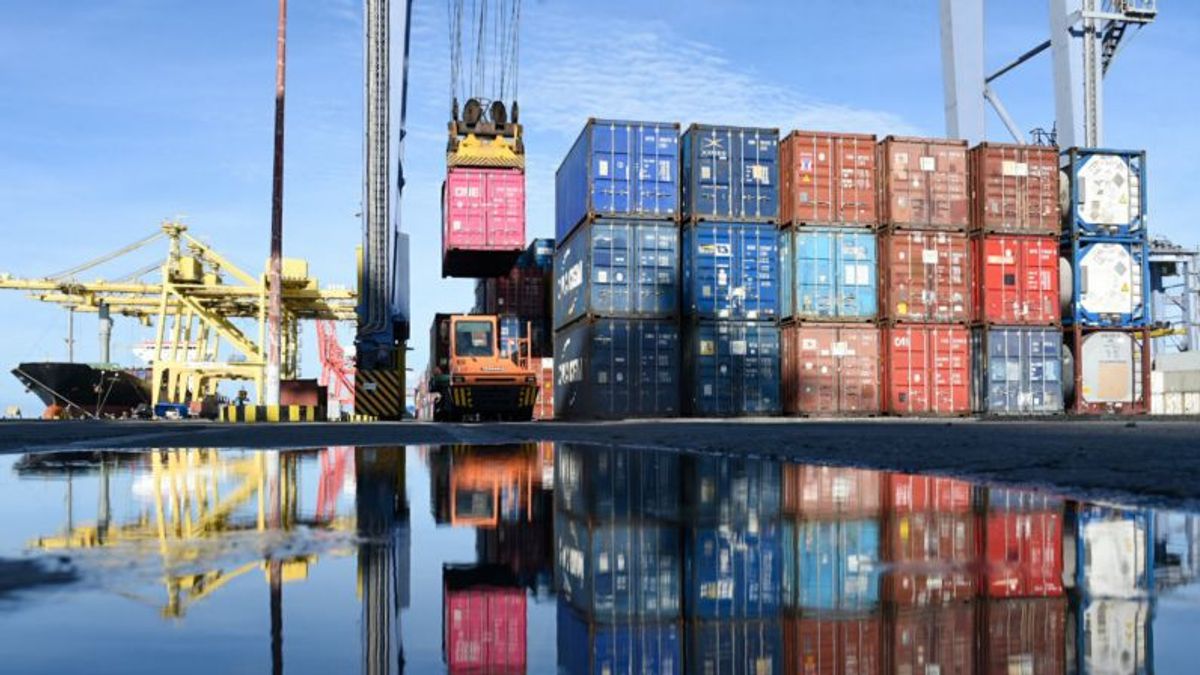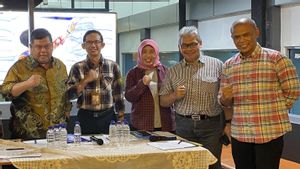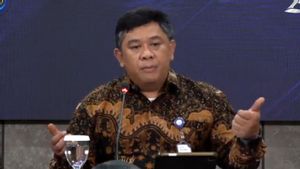JAKARTA - The Ministry of Trade (Kemendag) has opened its voice regarding the complaints of business actors regarding the regulations for tightening imports. The Ministry of Trade denies that tightening imported goods actually makes domestic consumers prefer shopping abroad.
The entrepreneur's complaint is related to the Regulation of the Minister of Trade (Permendag) Number 36 of 2023 concerning Import Policy and Regulation.
Acting Secretary General of the Ministry of Trade, Suhanto said that the government through these regulations did not intend to prohibit or tighten imports. He said, the regulation was present to encourage people to use domestic products.
"We don't prohibit imports, we don't tighten imports. But it's more selective, if domestic products can why should we use imports. We don't want our MSMEs to die," he said when met at the Ministry of Trade, Jakarta, Friday, February 2.
Suhanto said, the presence of this rule could also help the government in minimizing rat routes that are often used by a number of individuals to distribute illegal imported goods into the country. Moreover, he said, so far the government does not have the ability to check cross-border goods.
Furthermore, Suhanto also denied that entrepreneurs' concerns about the impact of this policy actually made domestic consumers prefer to shop abroad.
"Ah, not really. In other words, if you buy branded goods abroad, you often go for a walk, if you are rich, you don't go abroad, then while traveling people shopping, it's normal. Some go home with goods because there is a branded buying opportunity, have money, why not," he said.
Previously, Chairman of the Indonesian Shopping Center Retailers and Tenants Association (HIPPINDO) Budihardjo Iduansjah said that the implementation of the import policy implemented, one of which was in the regulation of tightening imports for branded goods, had an impact on certain sectors, and resulted in many opportunities being lost.
As a result, continued Budihardjo, the option to shop abroad was then chosen by many domestic consumers because it was cheaper and the choice was more complete. This means that Indonesia loses the opportunity to become a shopping destination for foreign tourists, because the prices are expensive.
SEE ALSO:
"The practice of entrusting services or jattip that does not pay taxes and illegal imports is becoming more and more mushrooming," he explained.
In fact, he said, the MSME sector was also affected by the tightening of imports of raw materials so that domestic product production was also affected. So far, it is known that retailers have also played a large role in helping MSMEs and local producers in the supply chain ecosystem network.
"The government has made various regulations that are good but not appropriate in overcoming this illegal import problem. A serious impact has been experienced by legal importers. In several open hearings, we have also conveyed conditions in the field but regulations are still being issued," said Budihardjo.
The English, Chinese, Japanese, Arabic, and French versions are automatically generated by the AI. So there may still be inaccuracies in translating, please always see Indonesian as our main language. (system supported by DigitalSiber.id)














